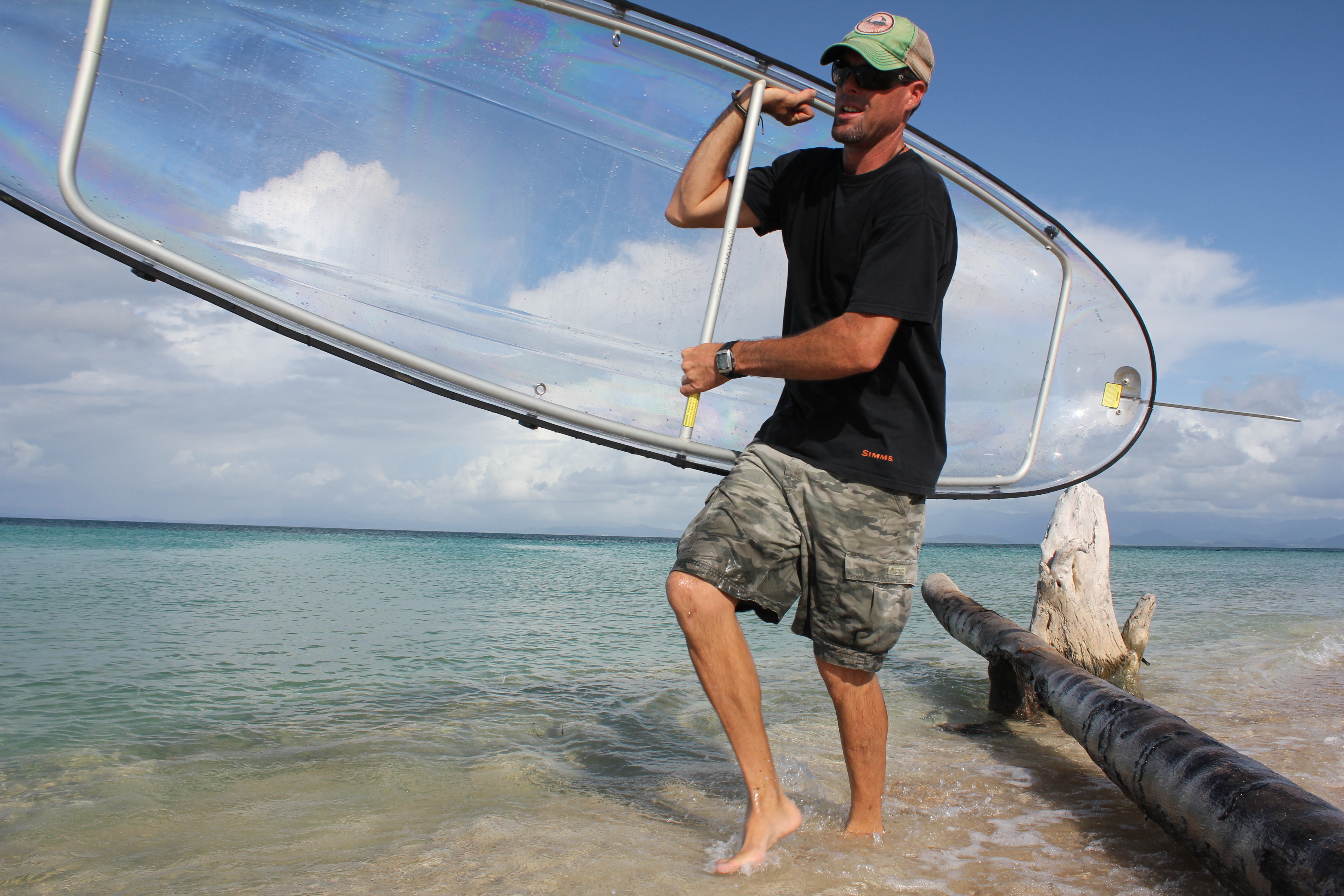His Travel Dream Began In An Animal Shelter
When Garry Lowe moved to Vieques, off the coast of Puerto Rico, he was in a pinch for lodging. One place fit his budget: a cot at the local animal shelter. Dozens of howling dogs provided wake-up calls for the 36-year-old Canadian, who was working for scraps, so to speak, in hopes of starting a business. Six years later, Garry runs Vieques Adventure Company, leading nightly tours into the island's bioluminescent bay before going home, where, returning an old favor, he shelters adopted dogs — but now he gets his own room, and a bed.
** Q: You moved to a beautiful island and lived in a dog pound? Explain that.**
A: I'd decided I was going to live on Vieques no matter what, even if I was short on cash. The animal-shelter director had a knack for finding those that needed help, and I sure needed some.
Q: How bad was it?
A: There were rat holes in the screens, bedbugs on my cot and dogs fighting every day in the big cages. I was asking myself, "Could I possibly go any lower?"
Q: But you stayed on anyway. Why?
A: All I had to do was walk a few blocks from the shelter to find a beautiful stream where I could fly-fish. So it was paradise during the day. And the island was in my DNA, literally.
Q: A 6-foot-3 white boy from canada has Caribbean island blood?
A: My grandmother and grandfather actually grew up in Vieques. My mother is Puerto Rican. But I was raised on a farm outside Kitchener, Ontario. I didn't know what a banana tree looked like, but I did know how to drive a tractor when I was 7 years old.
Q: So how does a junior tractor driver become a tropical kayak guide?
A: I was building rafts and riding local rivers when I was still in grade school. Then we moved to Puerto Rico during my teen years. I felt like I'd found my spot here before we had to go back to Canada. But I knew I'd someday live in Puerto Rico. It took me 20 years to do it.
Q: And there you were, a peso-less stray, in the place you fantasized about.
A: I started out with a low-wage job at a local sports store, and used my extra cash to buy kayaks to rent. It grew from there. At one point I had 20 bikes and 10 kayaks in my one-room apartment.
Q: Sounds a little cramped.
A: I felt like one of those potted plants with roots sticking out everywhere. So I got a loan, bought a house and a couple of beat-up trucks, and welded together some trailers. It's all worked out.
Q: As easy as that?
A: Well, having an MBA in international business may have helped. But I think it was more because I refused to leave, no matter what kind of problems there were. I've seen hundreds of people come and go from Vieques in the time I've been here, but I stuck it out because I feel this is where I belong.
Q: You lived in a dog kennel, help people paddle kayaks — and you have an MBA?
A: And my cousin who works for me has a master's degree in psychology. I guess we're overqualified in one way, underqualified in others. Anyone can buy a few kayaks and rent them — it takes something more to keep it going.
Q: What do you do that's different?
A: The bioluminescence here is magic. We're the only guides who run night tours in clear kayaks so people can see the shining life right below them. It's inspirational, like church. I'm like a missionary for the world of nature.
Q: A missionary for glowing plankton?
A: For the whole ecosystem. I'm crazy about getting my guests to wash off insect repellent — that stuff can kill the bay. We run kayak fishing trips, doing it just like the original natives did. You can really learn a lot from the fish.
Q: i'll bite. What have the fish taught you?
A: On a small island every action has ripples. You may fire an employee, but you're going to see him in the local bar. Another guy you train may become head of the local government.You don't want to get bitten by your actions.
Q: You learned something from the dogs?
A: Yep, that you have to take things slowly, think them through. Otherwise, you might end up in a dogfight.
